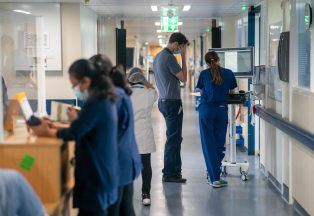Scottish scientists hunting for a safe male contraceptive have developed a quick-thinking robot to speed up the process.
A team at the University of Dundee has developed a fully automated screening system which allows them to rapidly test the effect of drugs and other chemicals on human sperm.
Apart from the condom, there is no effective and widely-available form of contraceptive available to men.
Scientists say finding an effective male contraceptive would be a “major step” in addressing inequality between the sexes.
The robot has already allowed researchers to quickly and accurately screen the effects of thousands of drugs.
The researchers in Dundee are being led by Professor Chris Barratt and Dr Paul Andrews.
Prof Barratt said: “This is a breakthrough in technology for the area.
“It allows us for the first time to assess in large numbers how compounds can affect sperm function.
“Surprisingly there has been no effective, reversible and widely available form of contraception developed for the male since the condom and, as such, the burden falls largely to the female.
“Finding an effective male contraceptive would be a major step in addressing that inequality.”
Scientists hope to identify a drug which safely stops sperm from reaching the female’s egg.
The Dundee robot uses a fast microscope and image-processing tools to precisely track the very fast movement of human sperm, allowing the effects of drugs to be accurately measured.
Dr Andrews said: “The conventional way to test drugs for contraceptive activity is prohibitively time-consuming.
“Through the hard work of the multi-disciplinary research team in Dundee, we have managed to develop a disruptive technology platform we hope will be a game changer.
“This new system speeds up the process of drug hunting several thousand-fold.
“The automated system also uses a different method to examine the effects of drugs on a second critical aspect required for fertilisation, called the acrosome reaction.
“This dual platform now allows for major drug discovery programmes that address the critical gap in the contraceptive portfolio as well as uncover novel human sperm biology.”
Results of the study, funded by the Bill & Melinda Gates Foundation, are published in the journal eLife.
Follow STV News on WhatsApp
Scan the QR code on your mobile device for all the latest news from around the country




























